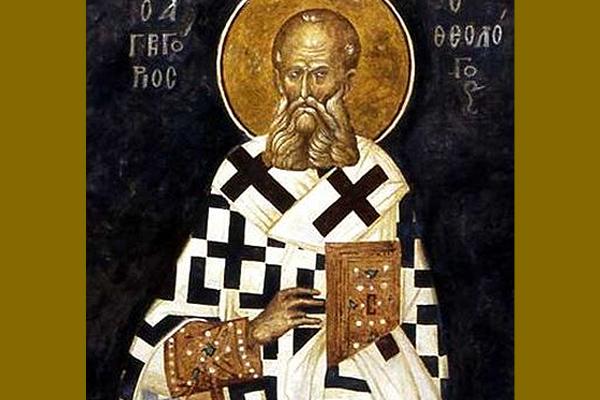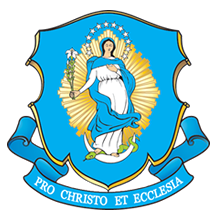
By Kimberly Bruce
Saint Gregory of Nazianzus belongs to that elite group of 37 current Doctors of the Church (exceptional teachers of the faith). He is considered one of the greatest lights of the Eastern Church as well. Acclaimed “The Theologian,” he is remembered for defending Church teaching and leaving to the Church hundreds of his religious poems and letters.
He shares his feast day, Jan. 2, with another Church Doctor and his closest friend, St. Basil of Caesarea, the Great.
Dedicated to God
Born circa 325 A.D. in Arianzus in Asia Minor (modern-day Turkey), St. Gregory was the son of Gregory, Bishop of Nazianzus (it was not uncommon at this time for clergy to be married). The elder Gregory was once a member of the Hypsistarii—a Jewish/pagan sect, but was converted to Catholicism by his pious wife, Nonna, with whom he had two other children.
Saint Gregory was dedicated to God by his mother as an infant and received Baptism early in his adult life.
Saints Basil and Gregory met as students in Athens. Highly schooled in rhetoric, St. Gregory could have chosen any career path but longed to be a simple monk. He returned to Nazianzus where his father insisted he be ordained to the priesthood, despite his pleas.
Reluctant bishop
In 370, St. Basil, who had become Archbishop of Caesarea, consecrated St. Gregory Bishop of Sasima, again against his wishes. Poor St. Gregory longed for solitude and felt unsuited to the task, and the appointment strained their friendship. Saint Gregory is quoted, in Select Orations (Vol. 107, edited by T.P. Halton), saying to St. Basil:
But I have also a bone to pick with my friend … You of all people, admirable man, did something unspeakable to me, something truly unspeakable and incredible and, what is more, something previously unheard of in our relationship. We were not persuaded; we were forced. How strange! How oddly everything has changed! How great the gap that has arisen between us!
Even in his sorrow and distress, however, St. Gregory acknowledged his friend’s holiness, saying, “However it may be, lead and in your majesty ride forth victoriously and shepherd us, your shepherds. How ready we are to follow the lead of your lofty and inspired shepherd’s soul!”
Later in life, St. Gregory acknowledged the hand of God in his friend’s push of him to be more than he had ever desired in life, for God’s greater glory. Saint Gregory revealed:
My anger is now a thing of the past—let the afflicted hear and be glad—and I look kindly upon the hand that played the tyrant, and I laugh in the Spirit, and my heart is at peace, and good judgment has returned, and friendship, like a flame that has died down and gone out, has been rekindled from a tiny spark and springs back to life once again.
Defender of the Trinity
Following St. Basil’s death, St. Gregory stood strong against the Arian heresy, which denied the Trinity. He suffered slander, insults, and violence. As bishop of Constantinople, he famously defended the doctrine during the Church’s Second Ecumenical Council of Nicaea in 381:
We ought not, on the assumption that Father, Son, and Holy Spirit are the same, adopt language that from a fear of polytheism contracts its reference to a single individually existing entity, keeping the names but stripping them of any distinction … Nor, on the other hand, ought we divide them into three substances that are either foreign, dissimilar, and unrelated (which is to follow what is well called the insanity of Arius) … It is our duty then both to maintain the oneness of God and to confess three individual entities, or Persons, each with his distinctive property.
Saint Gregory resigned as bishop in 381 due to ailing health and returned to Nazianzus. He died in 389 and his holy relics were transferred to Rome during the Middle Ages.
Although he longed for silence and contemplation, St. Gregory stepped up to defend the faith when challenged, at great personal cost. What an example for us to follow!
Saint Gregory Nazianzus, Doctor of the Church, pray for us!
{shopmercy-ad}
















